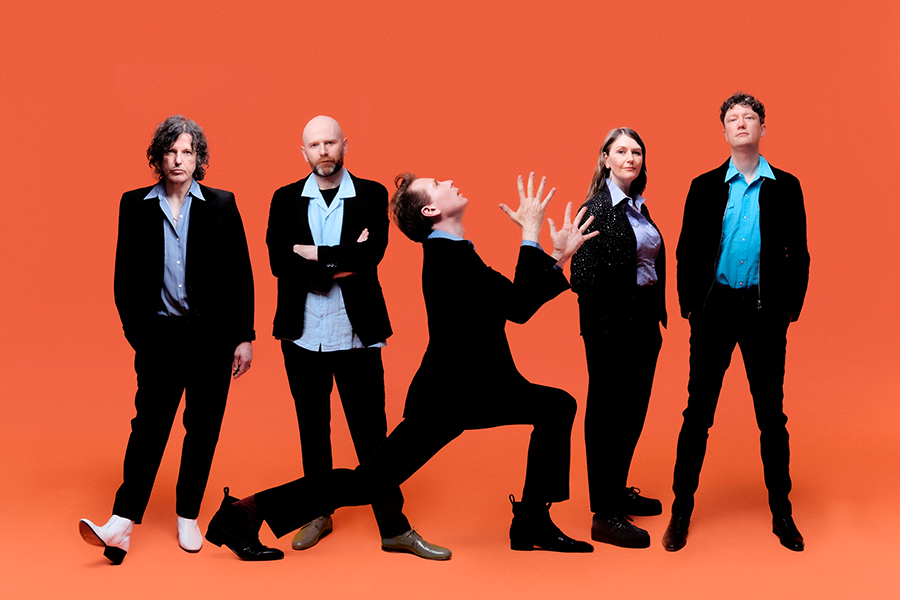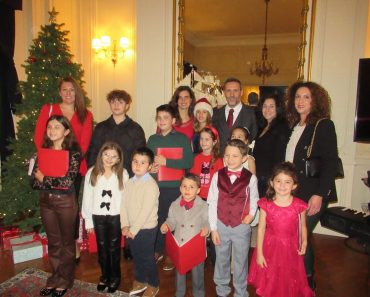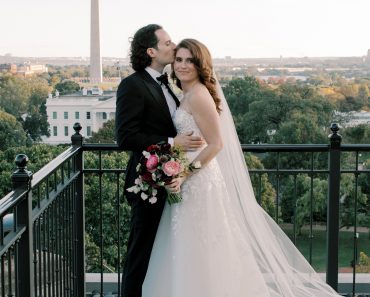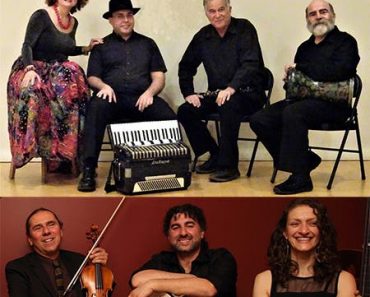
Franz Ferdinand, courtesy.
‘);var c=function(){cf.showAsyncAd(opts)};if(typeof window.cf!==’undefined’)c();else{cf_async=!0;var r=document.createElement(“script”),s=document.getElementsByTagName(“script”)[0];r.async=!0;r.src=”http://srv.clickfuse.com/showads/showad.js”;r.readyState?r.onreadystatechange=function(){if(“loaded”==r.readyState||”complete”==r.readyState)r.onreadystatechange=null,c()}:r.onload=c;s.parentNode.insertBefore(r,s)};})();
Much is going on in the life of Franz Ferdinand frontman Alex Kapranos as of late. The Scottish quartet is back with its first album of new songs in six years, The Human Fear. But Kapranos, 52, is also newly married to French musician Clara Luciani and is a first-time dad. His son is a year old. The family spends most of its time in Paris; another big change for the Glaswegian.
Franz Ferdinand
7 p.m., Tuesday, March 28
The Warfield
Tickets: $67-$111.
“My wee boy, he’s mad for the music,” Kapranos said in a recent video call from L.A., where Franz Ferdinand was in town to play a holiday radio show. “His first word was ‘no,’ his second word, ‘mama,’ third word was ‘dada,’ and his fourth word was guitar.”
Kapranos extends the last word in his crooner lilt—gee-taar—and his eyes sparkle as he smiles and communicates his pride. His son even has his first recording credit on the new album; a happy cry on album centerpiece—and the closest to a title track—“Hooked.”
Thematically, the album is about universal fears that make humanity feel alive. “Hooked,” the last song to be completed, is about Kapranos’ revelation that even in the face of the most existential dreads, there are lifelines.
“That song’s about my boy, but it’s about more than that,” he said. “You know … those fears that if we allow ourselves to be dragged down by in moments of solitude or introspection that can make us suffer? I’ve definitely been prone to that. … The biggies: the fear of non-existence, the fear of the futility of it all, the fear that there may not have been a purpose to your very existence. Those fears have always been with me, and I can’t deny it. I’ve always tried to acknowledge them, but not to be dominated by them. That’s the fear I’m talking about, but in the chorus I sing, ‘I thought I knew what love was, and then I met you.’
“Before my boy was born, lots of people said, ‘Oh, you’re going to love your son.’ I was like, ‘Of course I’m going to love my son,’ but I wasn’t prepared for the nature of it, also how overwhelming it was and how unfamiliar it was. … I felt like a tidal wave of this unfamiliar love overwhelming me. … When I came to terms with it, I realized that all those fears that I’d always had were still there, but they felt insignificant or trivial in comparison to this sensation that I had. … As you go through life, you feel that there are less and less surprises, and it was quite a treat to have such a vivid surprise.”
Alongside bandmates Bob Hardy (bass), Julian Corrie and Dino Bardot (guitar), and Audrey Tait (drums), Kapranos delves into fears familiar and niche. “Night or Day,” which sounds like it could have been pulled directly from 2005’s You Could Have It So Much Better, is about the fear of commitment. Crunchy power pop tune “Bar Lonely” is about the fear of calling a relationship quits even though you know it’s for the best.
Then there’s the drum-forward “The Doctor,” which Kapranos described as being about his fear of leaving an institution. He had chronic asthma as a child and spent lots of time at the hospital. He started feeling comfortable there.
“I’ve become accustomed/ To this level of attention/ I have nurses I can talk to/ And thermometers to hold,” he sings.
“Here we go with riff one”
We appreciate you nodding to your favorite Bay-Area-based music news publication right off the bat at the start of album opener “Audacious.” Why did you include that line?
That section is actually taken from a voice note on this phone right here. I’d written a song, but I wanted a riff for it. I like a good riff, what can I say? I felt the song was missing a riff. I’d been talking to Bob about it, and so I had the song playing in the background. I had my phone recording, and I was playing the riffs just live over the top of it with the phone, recording it just to show Bob what the riffs were. …
Then I go, “here we go, riff two,’ and then “here we go, riff three.” … But I have to admit there’s a little bit of editing trickery. What you’re hearing is actually riff two, even though I’m saying riff one. I liked the idea of making it riff one because it feels also like there’s going to be a lot of riffs coming on the album. … Riff one, and then you’re going to hear a bunch more after that.
Perhaps the most telling reveals itself on the album’s most unique song, “Black Eyelashes,” for which he pulled from his love of Greek Rembetiko music of the early 20th century, influenced by immigrants from surrounding areas like Turkey and the Balkans.
Kapranos, whose father immigrated from Greece to England at the age of 10, even sings in Greek here. The song is about his fear of not having an ancestry or national identity. It’s about him searching for his “Greek-ness” on childhood trips to his father’s homeland, as well as his most recent trip there in 2019.
“When I was a kid I would say, ‘I’m Greek,’ and they would say, ‘You look awfully blonde for a Greek boy,’ or ‘You don’t speak Greek.’
Kapranos sings those accusations on the song—in Greek.
“I’m saying, ‘Why doesn’t he speak Greek. He’s not really Greek, because he doesn’t speak Greek’,” he said. “I’m a typical son of an immigrant, because I know where I’m from, but I know I’ll never be truly from there.”
The song incorporates a traditional Greek lute called a bouzuki, which gives “Black Eyelashes” an Eastern-tinged sound. The song’s title pulls from a common Rembetiko theme of dark eyes, eyebrows or eyelashes.
“Mine are blue. So I guess that’s me trying to find my black eyes or my black eyelashes; it’s a metaphor,” Kapranos said.
Kapranos the songwriter points out that the thematic through-line for The Human Fear didn’t present itself to him until after the album was done. He said he didn’t set out to write songs that were connected to each other by any specific theme and likened the process to that of 2009’s Tonight: Franz Ferdinand.
There are more layers to the songs and other ways to interpret them, he said, but his way of understanding the album is a deep dive on a topic that fascinates him.
“It’s impossible to have a life without fear. You have to face up to fear at different times, and while fear is universal, our response to fear is deeply personal,” he said. “It’s how we find out who we are. It reveals our character, our personality. … Overcoming fear is possibly the definition of life itself. You never feel more alive than when you’ve actually overcome a fear. I get that every time I go on stage. I still have to overcome the terror of facing all those people.”
The album includes an eclectic mix of songs, most written recently but a couple—“Build Up” and “Night or Day”—being started during the sessions for 2018’s Always Ascending. Kapranos credits Bardot for resurrecting the latter. And while “Tell Me I Should Stay” is a relatively new song, the frontman has had the bass line filed away in his brain, which he likened to a cluttered academic’s office, since 1995.
Franz Ferdinand recorded the album with producer Mark Ralph (who’s worked with the band before) at AYR studios in Scotland, a remodeled painting studio with many windows rather than the traditional sealed-off, soundproofed music studio. The video for “Night or Day” was shot in the room.
There’s also a companion demos LP that will be available at record stores only on vinyl format at the same time as the main album. Kapranos said he’s fallen in love with showing where the songs came from, but wants them accessible only to those who like to seek that sort of thing out.
“You have to do the searching for it because I’m old school. I like looking for records that I like,” he said.
Throughout the writing and recording process, Kapranos and Hardy, the remaining original members, met and chatted about how to be true to the Franz Ferdinand identity. The band is in a solid place now, but Kapranos said it faced some pressure from within before to pursue what was trendy or of-the-moment.
Then, at the time Franz Ferdinand was making Always Ascending, the band nearly added collaborator Sam Potter as a member, Kapranos conceded.
“He was very keen. He was really pushing us to abandon our sound and kept on saying, ‘You know, it’s just not fashionable. You need to kind of do something different. … It’s all about texture. Melody is no longer important, Alex. It’s all about texture,’” he said. “I like Sam a lot. He’s a good guy, but I realized that he was talking bullshit, and the melody and songs are way more important. Texture is just the shit you add on the top to make it sound interesting. That’s how you get part of the sonic identity. I love that stuff, but what’s the point of texture without a bloody tune?”
Kapranos said he also didn’t want to pursue trends because they were already dated by the time they were known. And so, Franz Ferdinand rolls along, making music out of joy rather than on a quest of achievements.
Contact editor Roman Gokhman on Bluesky at roman.riffmagazine.com.






